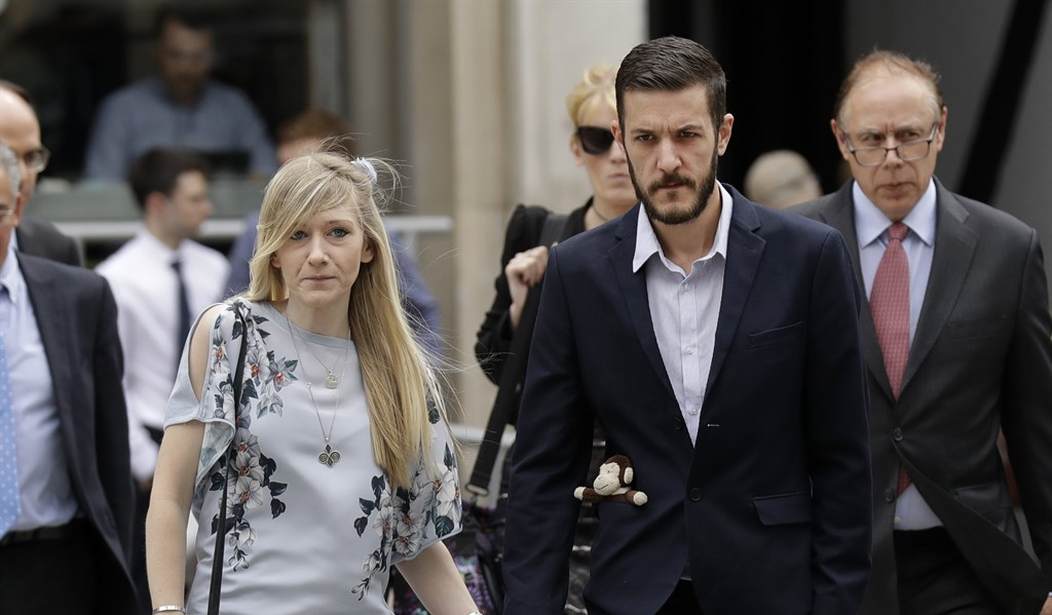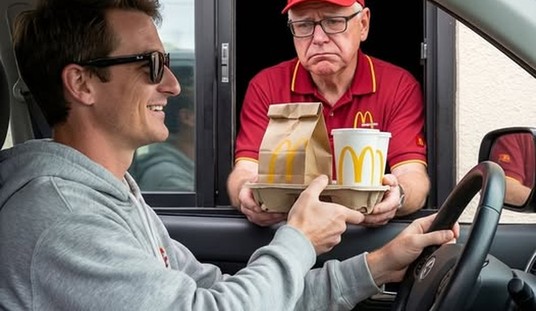Has the court in the Charlie Gard case signaled a new openness to treatment? Judge Nicholas Francis has now decided to have the US specialist who has volunteered to treat the baby come to the UK to examine him. Dr. Michio Hirono will be joined by a doctor from the Vatican hospital that has also volunteered to care for Gard rather than have him removed from the ventilator that is allowing the baby to breathe:
An American doctor who specializes in conditions such as that affecting Charlie Gard will be traveling to Britain next week to assess the critically ill baby.
High Court Judge Nicholas Francis said he is “open-minded about the evidence” to come after the visit of Dr. Michio Hirano of Columbia University. Hirano’s research focuses on mitochondrial diseases and genetic myopathies and he has treated others with conditions similar to that involving the 11-month-old. …
Hirano will meet with Charlie’s current immediate care team, together with other specialists, including a doctor from the Vatican children’s hospital.
“We’ll have to wait and see the evidence,” Judge Francis said. He promised to rule by July 25.
As some commented on hearing the news, it’s mighty generous of the judge to allow for an outside opinion by a specialist in the field. Until now, Great Ormond Street Hospital and the courts have all claimed to have the entirety of information needed to deny the child any other attempts at care, despite the private resources his parents have raised to get it. Remember well that had this court and the Great Ormond Street Hospital gotten its way, this would have been an autopsy rather than an examination. Charlie Gard was supposed to have been disconnected from the ventilator two weeks ago.
Now that the case has gotten worldwide attention, Judge Francis has now implied that he doesn’t have full understanding of Charlie’s situation. The reason why this hearing was necessary at all is because Judge Francis was obstinately closed-minded about the evidence in the first hearing, and so was everyone else who arrogated to themselves the authority to act on Charlie’s behalf from his parents.
Time Magazine reflects on the impact this notoriety has had, and either credits or blames American conservatives for it, depending on one’s perspective:
The twist in the legal case comes as a movement to bring Charlie to the U.S. has become an international campaign, bolstered by the involvement of conservative groups from the United States led by Catholics and evangelicals . Major attention on the case first picked up outside the U.K. when Pope Francis said in a Vatican statement that he was following the case “with affection and sadness” and prayed that Charlie’s parents’ “wish to accompany and treat their child until the end isn’t neglected.”
The following day President Donald Trump tweeted to his 33.7 million followers that he would be “delighted” to help Charlie, and the saga reached an entirely new audience. Suddenly, the case of Charlie Gard was being discussed in churches and by socially conservative groups across the U.S. On July 6, the Susan B. Anthony List, March for Life, Concerned Women of America and Americans United for Life — all socially conservative groups active in opposition to abortion — held a joint press conference in Washington D.C., where they announced the launch of a campaign to ‘Save Charlie Gard,’ including a petition and a “social media push” to raise awareness and support for Charlie and his parents. …
Thomas Williams, an Auxiliary Bishop for the British city of Liverpool, questioned the motives of some external actors. “It’s a terrible situation for both the family and the hospital,” he told TIME. “I’ve always accepted, as a priest and a hospital chaplain, that people need to be allowed to die and sometimes nature needs to take its course. The right-wing element of these evangelicals, I’m afraid I’m not down that line at all… I can’t read their minds, but I do think that people will stand on soapboxes when situations arise.”
This view paints the parents as the victims of the activists, which is a perverse observation — and which puts the courts in position as the authority for what’s best for them, too, rather than themselves. All the parents wanted to do is to use private resources for outside specialists to see if anything could be done for their child. The power of the state blocked that option based on their opinion that Charlie would be better off dead, based on what the judge now implicitly acknowledges was incomplete information. Williams should be asking why Judge Francis and the EU Court of Human Rights didn’t seek examinations and testimony from those specialists directly before consigning Charlie to death.
Time does acknowledge this, at least subtly, in its conclusion:
The fresh evidence presented in Thursday’s hearings might not have emerged had it not been for the involvement of the White House, and Charlie’s family believes the campaign may have saved their child’s life.
State control of health care is what produces this arrogance, and the negation of parental authority is another weapon used to exalt the state’s jurisdiction at the expense of families. There are moral lessons to be learned from this, even if some want to deliberately shade their eyes to them.








Join the conversation as a VIP Member